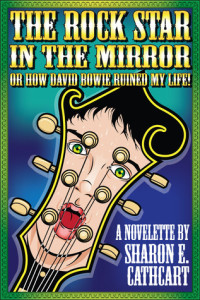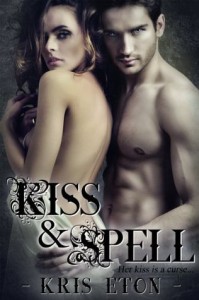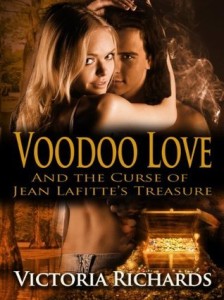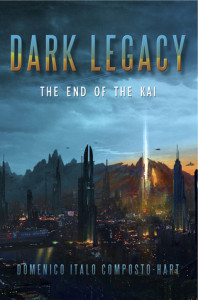I collected all the books that I own, written by people I ‘know’ into one place with the intent of spending the next month reading them. In doing so, I noticed a couple are actually novellas, novellettes, or short stories. So, I’m taking this opportunity to sit down and systematically work through anything less than 100 pages all at one time.
I’ll be honest up front, and I’ve said this before, I’m not a huge fan of short stories in general. I’m a bit mystified how I always seem to have so many on my Kindle. I think they breed. Anyhow, following are reviews of 6 very different stories, grouped for no more reason than that they matched an external criteria. Enjoy
 Oh my goodness! Oh my goodness, fan girl swoon! I loved this sooo much. (Honestly, I’m not just saying that. I really loved it.) It was the feel of it, more than anything else. Yes, I could wonder how Antho could see a proficient assassin as even remotely fragile. I do. But I don’t really have to understand where self-destructive, self-sacrificing, obsessive love comes from to believe it. Emotions are slippery things and sometimes they have a mind of their own, especially the emotions of already damaged people. (And aren’t we all just a bit damaged, in the end?)
Oh my goodness! Oh my goodness, fan girl swoon! I loved this sooo much. (Honestly, I’m not just saying that. I really loved it.) It was the feel of it, more than anything else. Yes, I could wonder how Antho could see a proficient assassin as even remotely fragile. I do. But I don’t really have to understand where self-destructive, self-sacrificing, obsessive love comes from to believe it. Emotions are slippery things and sometimes they have a mind of their own, especially the emotions of already damaged people. (And aren’t we all just a bit damaged, in the end?)
The open, all out on the table, completely exposed autobiographical letter style of the story is extremely effective in stirring emotions. I wanted very badly to see Antho and HIM to find some peace, but know it can’t be.
Apparently this is a stand-alone short for a series that doesn’t exist yet. I will DEFINITELY be reading it all when it does. A full five stars for this one.
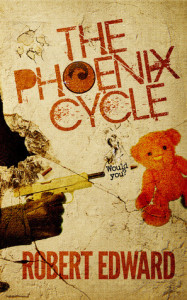 Would someone tell what the heck I just read, because I sure don’t know. It’s set in some mysterious dystopian future (no cause of the decline of civilisation is provided) and predominantly focuses on a mysterious character named Steve (no defining characteristics are provided) and his even more mysterious girlfriend, Leslie. So, essentially an unknown man, in an unknown future, fights some unknown social oppression, comes to some unknown decision, which then lead to some unknown consequences. Ummmm….
Would someone tell what the heck I just read, because I sure don’t know. It’s set in some mysterious dystopian future (no cause of the decline of civilisation is provided) and predominantly focuses on a mysterious character named Steve (no defining characteristics are provided) and his even more mysterious girlfriend, Leslie. So, essentially an unknown man, in an unknown future, fights some unknown social oppression, comes to some unknown decision, which then lead to some unknown consequences. Ummmm….
It’s my understanding that this is a small piece of a larger work. I had forgotten this when I sat down to read it. (To be fair, I’m fairly sure the author did mention it in his email.) If I had remembered, I probably would never have picked it up. I detest the trend of publishing teasers marketed as complete pieces of work. It pisses me off to realise too late that I’ve just invested time in a mere piece of something.
What’s more, and I’m really not trying to be mean here, I get the impression from the blurb (and the author’s ascertain that this somehow ties into a graduate thesis) that this whole series is being developed as some sort of university assignment. It feels like it too. From the synopsis:
The revolution is headed by the forgotten inmates of Alcatraz. These inmates are actually powerful philosophers like Plato, Aristotle, Nietzsche, Camus, Gandhi and others. Together they will take on The General (who is based off of The Marquis de Sade. A rather dark philosopher.) and a populace that struggles to care about anything other than themselves.
We’re name dropping here. We’re ensuring that the reader (professor) knows we’ve done our research. We’re creating artificial gravitas for ourselves. This sense of self-importance wasn’t just apparent in the write-up, but carried through the book too. It showed up in the way the vague inferences (and HEAVY descriptions) suggested that the reader should know what was going on, and if only they too were just a bit smarter, they would. When really, there simply wasn’t enough solid information provided to allow understanding to develop. Plenty of others love this story; so maybe despite all my education I’m really not up to sophist par. It’s off-putting. Or at least it is to me.
The writing is technically fine. There is a palpable atmosphere to the story and as a longer piece, the world could be interesting. But on it’s own, this is just an anchorless, random (and largely undefined) series of events that mean nothing to the reader.
Ms. Cathcart and I aren’t technically ‘friends’ so this doesn’t technically qualify for the challenge. But we’ve interacted a number of times in the forums and such. Since I’m reading shorts today, I figured I might as well throw it in.
I thought this was an interesting little story chronicling one young man’s attempt to find himself, when he wasn’t even originally aware that he was lost. An obsession with David Bowie, once removed, is just such a random way to go about it. I especially liked that the HEA isn’t one that brings all the happy people together. Joe had to face the consequences of his actions, but was still happy with the end result. It did seem to wrap up unexpectedly quickly, but it’s well-written and worth the time to read.
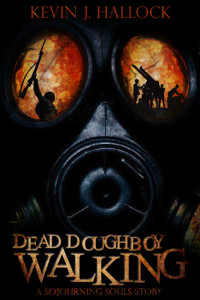 I suppose this was all right, just not really my thing. I was well written and self-contained, which is all I really ask of a short story. You get a fairly firm grasp of both Cecil and Horace’s personalities, though I have to admit I’m not sure if Cecil started out quite as evil as he ended up or if he became that way in the course of the story. The synopsis would suggest he started that way. All in all, for the right reader, probably a real win. For me, I can appreciate that it’s mechanically sound and makes sense, but can’t say I particularly enjoyed it.
I suppose this was all right, just not really my thing. I was well written and self-contained, which is all I really ask of a short story. You get a fairly firm grasp of both Cecil and Horace’s personalities, though I have to admit I’m not sure if Cecil started out quite as evil as he ended up or if he became that way in the course of the story. The synopsis would suggest he started that way. All in all, for the right reader, probably a real win. For me, I can appreciate that it’s mechanically sound and makes sense, but can’t say I particularly enjoyed it.
This was all right I suppose. In a way it was a sweet little romance and the sex was hot, though I’ve never been a fan of the courser language in soft sex scenes. By all means, call it a cock, cunt or pussy if it’s a dirty fuck and all, but if two people are supposed to be making sweet, gentle love the same words feel horribly out of place.
I do have one major complaint, though. It bothered me that Marissa was a sexually liberated woman who happened to like being in control in the bedroom, but she spends most of the book being ashamed of this and trying to change herself. Why can’t she just be a sexually aggressive woman who knows what she likes? Promiscuous girls can be good too. Why does this have to be portrayed as wrong? What’s more, she eventually found someone to happily submit to. So, the whole subtext appears to be that her initial behaviour was somehow unnatural and by accepting the “natural” monogamous, submissive role all is well with the world. Bah! What a waste.
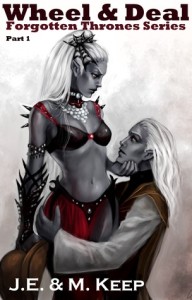 This looks to be an interesting start to something bigger. It introduces a lot of interesting characters, but never returns to any of them after moving on. How they all tie together remains a mystery. The writing is sharp and quite readable. It’s also well edited. But what I like most about it was it’s grittiness. Not everyone is pretty or noble or even clean. There are drug addicts, violence, and sex devoid of love or even affection. Characters have ulterior motives and sinister intents. However, this is in no way a stand-alone piece.
This looks to be an interesting start to something bigger. It introduces a lot of interesting characters, but never returns to any of them after moving on. How they all tie together remains a mystery. The writing is sharp and quite readable. It’s also well edited. But what I like most about it was it’s grittiness. Not everyone is pretty or noble or even clean. There are drug addicts, violence, and sex devoid of love or even affection. Characters have ulterior motives and sinister intents. However, this is in no way a stand-alone piece.

